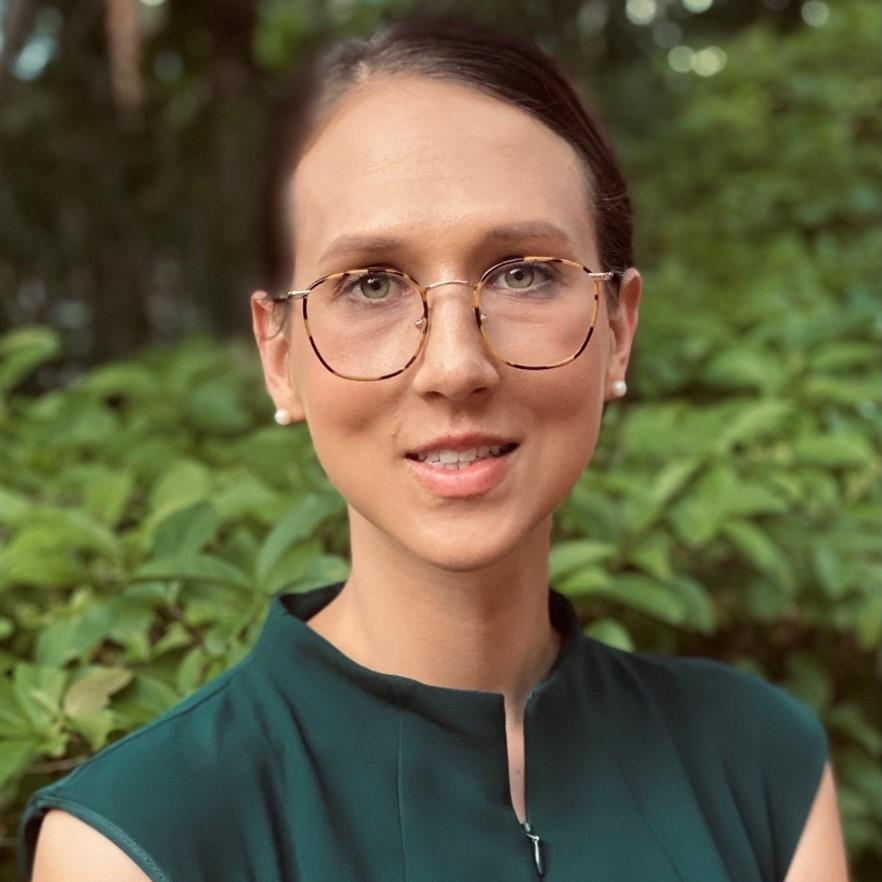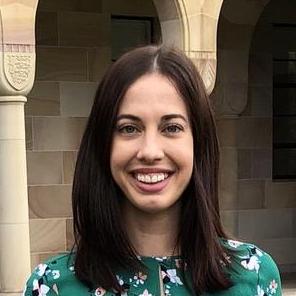 Emma Schimke, PhD (Speech Pathology)
Emma Schimke, PhD (Speech Pathology)
Emma was the 2020 UQ winner of the 3MT competition - UQ's first ever virtual iteration of the event.
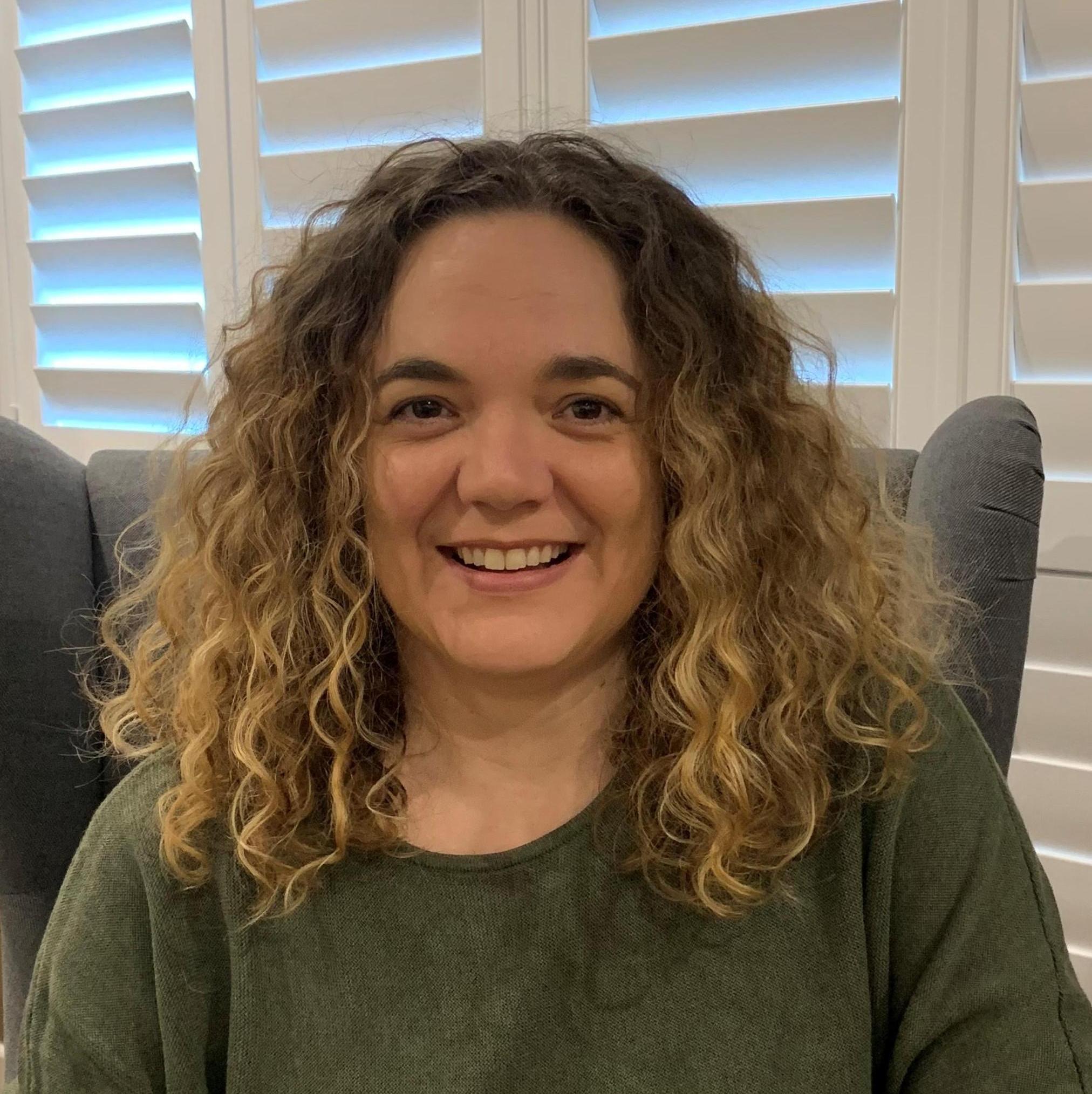 Lisa Anemaat, PhD (Speech Pathology)
Lisa Anemaat, PhD (Speech Pathology)
Lisa is a speech pathologist and conjoint research fellow with Metro North Health and The University of Queensland and works with the Queensland Aphasia Research Centre (QARC). Her research focuses on examining experiences, determining priorities, co-designing meaningful solutions with lived-experience experts, and improving consumer partnerships. Lisa’s PhD research used a novel application of Experience-Based Co-Design, to co-design aphasia services for QARC, who have adopted her findings as a future focus for the centre. Her research explored the unmet needs and priorities of stroke survivors to inform service development across remote, regional and metropolitan areas of Queensland. As the Consumer and Community Involvement (CCI) conjoint research fellow, she leads a program of research focussed on CCI in research approaches and exploring ways to improve these partnerships.
Lisa Anemaat's UQ expert profile
Email: Dr Lisa Anemaat: l.anemaat@uq.edu.au
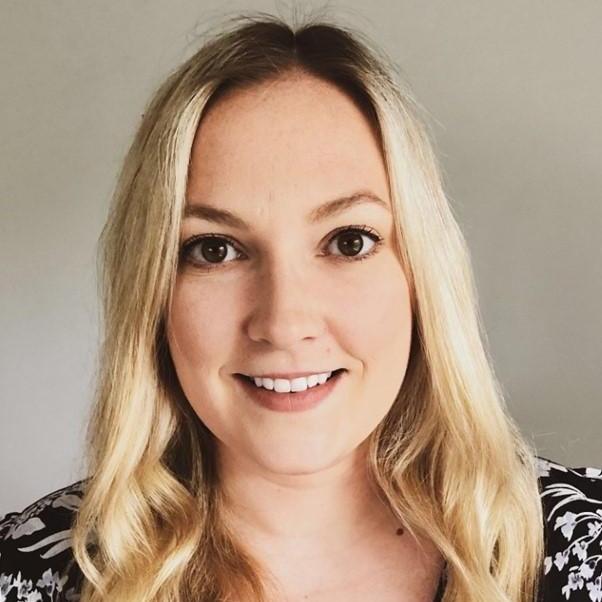 Marie-Pier Mc Sween, PhD (Speech Pathology)
Marie-Pier Mc Sween, PhD (Speech Pathology)
Canada
Completing my PhD at UQ has allowed me to study in a leading language neuroscience research laboratory with renowned experts in the field. Learning from expert researchers at UQ has been invaluable and having access to techniques such as functional magnetic resonance imaging to study language processing has given me a competitive edge.
While completing my PhD, I have been given the opportunity to collaborate nationally, internationally and across disciplines. I have also been given the chance to expand my skills beyond research by teaching and supervising undergraduate and master’s students. UQ has been a supportive and rich environment to complete my PhD studies. Studying at UQ has allowed me to develop the skills necessary to make a significant contribution to research and has prepared me well for an academic career.
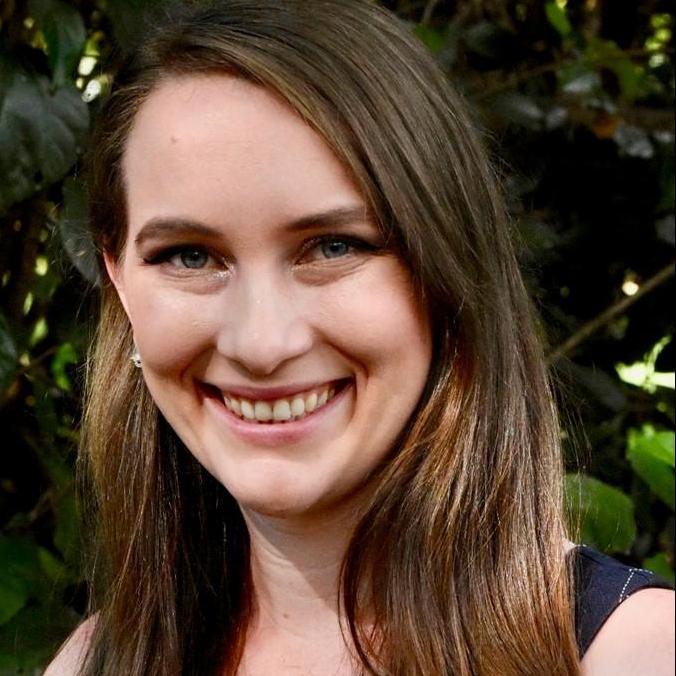 Dr Georgina Clutterbuck, PhD and Bachelor of Physiotherapy (honours)
Dr Georgina Clutterbuck, PhD and Bachelor of Physiotherapy (honours)
I chose to return to UQ for my doctoral studies due to the high calibre of multidisciplinary researchers in the School of Health and Rehabilitation Sciences. Particularly, my involvement with the Children’s Motor Control Research Collaboration at UQ has continued to support my research career post-conferral through connection to researchers, academics, and clinicians not only around Australia, but globally.
During my PhD I received support from UQ to enhance the reach of my research, and to develop the networks which have been essential to starting a successful research career. I was supported to travel to Montreal, Auckland, Paris, Geneva, Adelaide and Sydney to present my research findings in presentations and practical workshops. I was also supported to publish in open access journals so that my research was accessible to clinicians without journal subscriptions. My supervisors supported me to use the research included in my thesis for six publications in top journals which has meant I have been able to successfully receive funding for my future research as an early career researcher.
In addition to being supported to successfully complete my studies, I was also able to cultivate skills in research dissemination, knowledge translation, teaching and supervision. I had the opportunity to use my clinical experience to teach into the paediatric physiotherapy course and have since supervised UQ honours students to complete their own research. My experience at UQ was so fulfilling due to the experience, commitment and care of my UQ supervisors, A/Prof Leanne Johnston and Dr Megan Auld. It was a privilege to learn from and with them during my PhD.
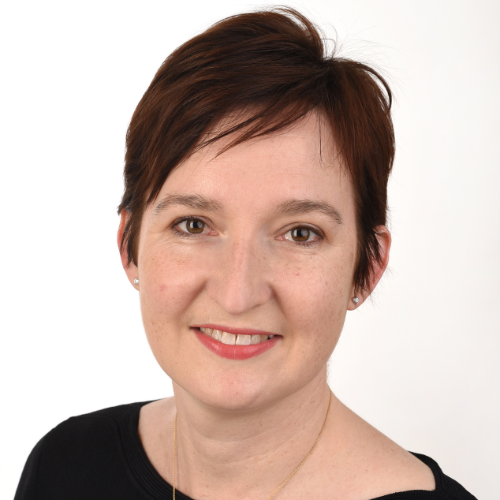 Dr Clare Burns, Doctor of Philosophy
Dr Clare Burns, Doctor of Philosophy
As a speech pathologist working at the Royal Brisbane and Women’s Hospital, I specialise in the assessment and management of swallowing and communication disorders associated with head and neck cancer.
Working as a clinician for many years, I understood the challenges for patients accessing these specialist services, particularly for those living outside metropolitan areas, who often needed to travel to access this care. I knew of the leading international research being conducted by Professor Liz Ward and Dr Annie Hill at the Centre for Research in Telerehabilitation at UQ. Their expertise in speech pathology and telehealth research and understanding of the health service environment guided me to develop a PhD program that addressed both my research questions and health service needs.
Working clinically alongside my PhD studies, I developed, implemented, and evaluated new telehealth models of care, utilising videoconferencing to support patients with head and neck cancer to access specialist speech pathology services at their local health facility. Through my PhD program I developed skills in the design and delivery of research studies within a health services environment incorporating clinical, service, and economic evaluations. The positive outcomes achieved from my PhD program has enabled the telehealth models to be embedded within usual practice and adopted by other speech pathology services.
Following my PhD, I have continued to be supported by my UQ collaborators and health service to build a clinical research career. In 2019 I was awarded a Metro North Hospital and Health Service Clinician Research Fellowship in partnership with The University of Queensland. This research fellowship is supporting me to continue to develop, implement and evaluate new telehealth models to enhance the delivery of speech pathology services.
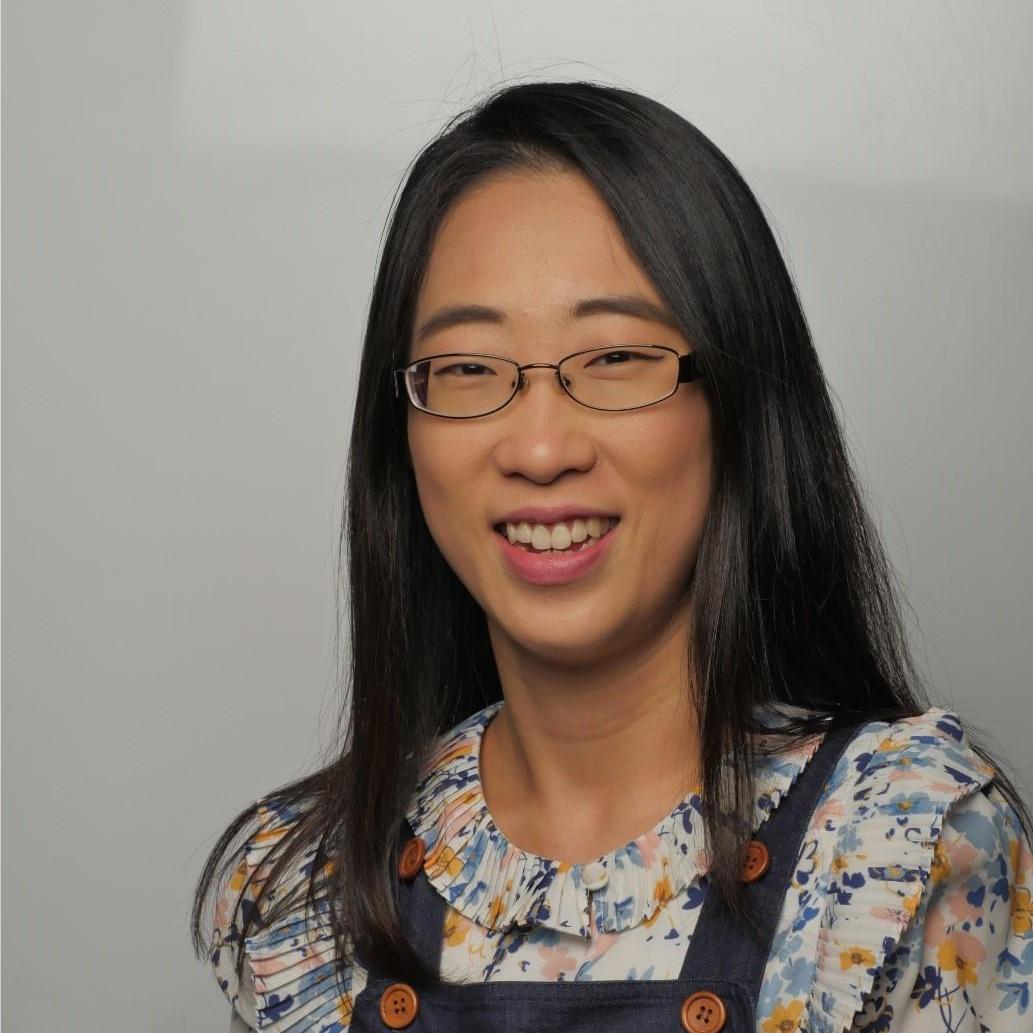 Robyn Choi, PhD (Audiology)
Robyn Choi, PhD (Audiology)
South Korea/New Zealand
UQ has a fantastic international reputation as one of the leading institutions in Audiology research. The support my PhD supervisors and the Faculty of Health and Rehabilitation Science has given to me throughout my Masters of Audiology Studies and PhD have been phenomenal, as I was able to gain experience in academia and research, as well as continue my clinical practice as an Audiologist. These opportunities have given me enough experience to obtain a job as a lecturer in Audiology as soon as I obtained my PhD. The academics and professional staff in Audiology are some of the highest quality educators I have experienced, and they genuinely care about making sure you have a positive experience. If audiology and research/academic career is the profession you are thinking of, I highly recommend you to consider studying at UQ.
Alana Hutchinson, PhD
I was fortunate enough to be selected into the UQ Global Change Scholars Program, a unique opportunity accepting only the top 30 PhD scholarship candidates across the University. Through the opportunities of this program, I was able to develop meaningful professional connections and widespread learning interests. I was able to complete a postgraduate certificate of economics whilst simultaneously completing my PhD studies on the topic of novel radiotherapy techniques to improve outcomes for patients with head and neck cancer, supervised by Dr Bena Brown, Professor Liz Ward and Dr Laurelie Wishart.
As a part of the Global Change Scholars program, I also completed an internship at a consultancy company based in Sydney which solidified my passion for health economics. From the time my thesis was submitted I was already employed with a health economics consulting firm, demonstrating the breadth of opportunities available for PhD graduands. I would not have been able to follow My passions without the skills and experiences I acquired during my time at UQ.
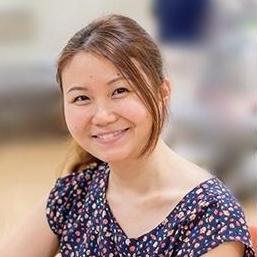 Amelia Tan, PhD Candidate (Occupational Therapy)
Amelia Tan, PhD Candidate (Occupational Therapy)
Singapore
I became particularly interested in upper limb neurological rehabilitation while working as an occupational therapist in Singapore. Therefore, I returned to UQ in 2019 to pursue a PhD in decision-making for upper limb interventions in neurological rehabilitation, under the supervision of Associate Professor Jodie Copley and Professor Jennifer Fleming.
The best part about doing a PhD at UQ is meeting other staff and researchers who are passionate about research and who collectively offer extensive knowledge about a wide range of research areas and methods. I love being in this intellectually stimulating environment, where discourse and collaborations are welcome, and where I have the opportunity to keep on learning more from leading or upcoming experts in each field.
During my PhD, I’ve taken up various opportunities to teach, plan and prepare course materials, and mentor students as a clinical educator. This has prepared me for a potential future career in academia, while also honing many professional and transferable skills which I can apply in clinical research when I graduate. I completed the Graduate Teaching Associates (GTA) program in 2020, which gave me theoretical knowledge and applied practice of teaching and learning pedagogies. Participating in the GTA allowed me to subsequently gain recognition as an Associate Fellow of the Higher Education Academy. To my surprise and delight, I received the Faculty of Health and Behavioural Sciences Tutor and Demonstrator Award in 2021, which recognised my passion and commitment to excellence in teaching and learning.
One of my favourite annual events at SHRS is the Postgraduate Research Conference (PGRC). I love having the opportunity to share about my research within a safe and supportive environment, hearing about the exciting range of research conducted at SHRS, and meeting other researchers and PhD students. I participated in the PGRC in 2019 and 2021, where I won the People’s Choice Award for the Best 30-second Thesis Video and the Best Presentation Award in the discipline of Occupational Therapy respectively.
My PhD journey has also developed my skills in science communication, and trained me to distill my research into its key points. In 2021, I participated in the Three Minute Thesis (3MT) competition and won the School of Health and Rehabilitation Sciences (SHRS) 3MT Final, as well as the People’s Choice Award at the Faculty of Health and Behavioural Sciences 3MT Final. Through this experience, I have grown a deeper understanding about the importance of creating research impact beyond publications and conferences. I really look forward to engaging in more opportunities to disseminate my findings, translate research into clinical practice, and grow my research and professional skills during the rest of my candidature at UQ and beyond!
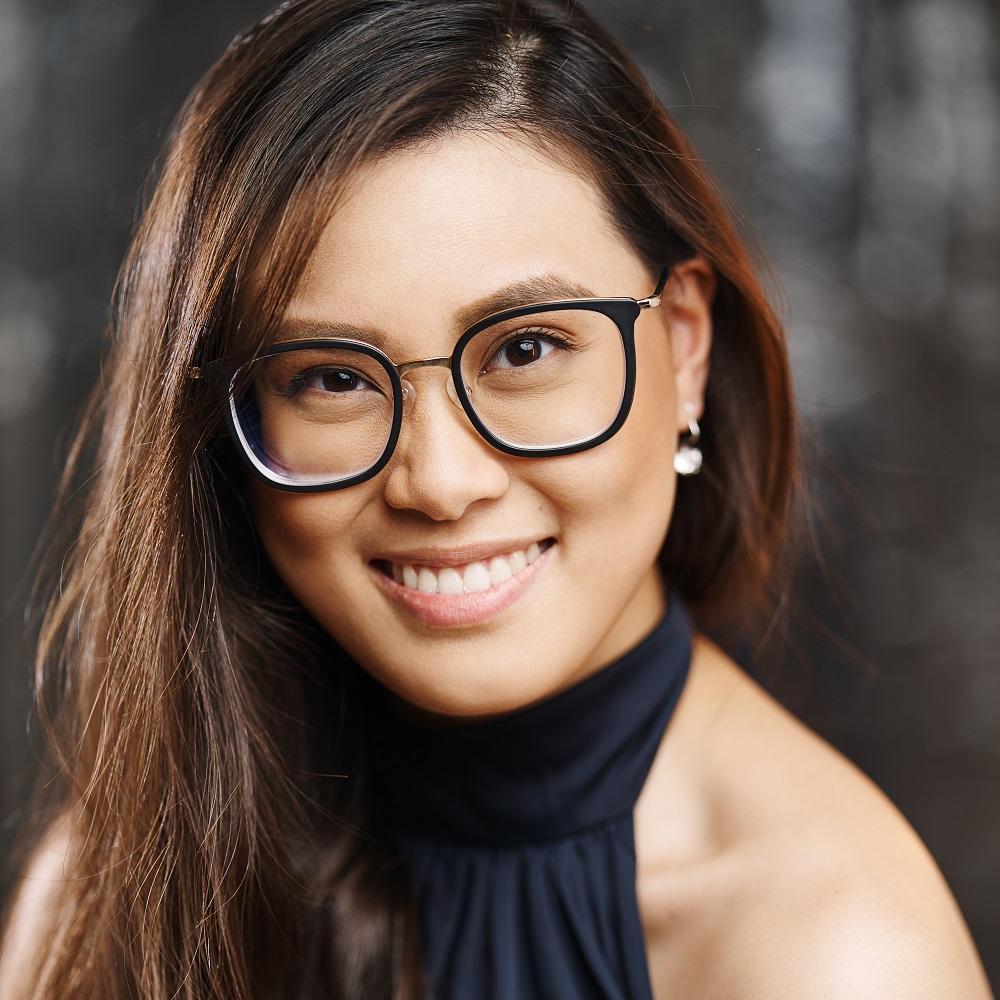 Genevieve Vuong, Bachelor of Speech Pathology (Honours I)
Genevieve Vuong, Bachelor of Speech Pathology (Honours I)
I have had the privilege of studying at The University of Queensland for the entirety of my tertiary education so far. I started studying Speech Pathology in 2016 and was immediately supported and encouraged by my educators and peers to immerse myself in not only the intriguing content, but also the exciting experiences that the university had to offer. I became involved in the student leadership teams of the Speech Pathology and Audiology Student’s Association, and Towards International Medical Equity, which both allowed me to further my passion in health equity. I had the opportunity to complete a Summer Research Scholars Program. This program allowed me to experience research within speech pathology, and I became involved in delivering a novel therapy program for people with aphasia. This program led to my fondness for working with and supporting people with aphasia. In my final year of my bachelor’s degree, I completed an elective subject in telehealth, which piqued my interest as I realised it provided an equitable option for people to access healthcare.
These experiences led me to pursue a higher degree in research, focussing on delivering a comprehensive aphasia therapy program via telerehabilitation. Throughout my PhD, I have acquired invaluable skills in research and project management, as well as furthered my clinical expertise. I have been welcomed into a multitude of peer support, research engagement and interest groups that have connected me with colleagues nationally and internationally. Engaging with these groups and the supportive environment at the Queensland Aphasia Research Centre has enhanced my research experience. I’ve also presented at multiple conferences and was honoured to be Runner Up in the UQ Three Minute Thesis Competition in 2021. My 3MT has also been broadcasted on national radio on the ABC’s The Science Show with Robyn Williams.
Overall, my experience within the School of Health and Rehabilitation at The University of Queensland has been multidimensional. It has made me into a well rounded person and given me the confidence to interact with different aspects of speech pathology. I look forward to furthering my experiences in the last 18 months of my PhD, through teaching and tutoring as I believe in advancing the education for the next generation of speech pathologists.
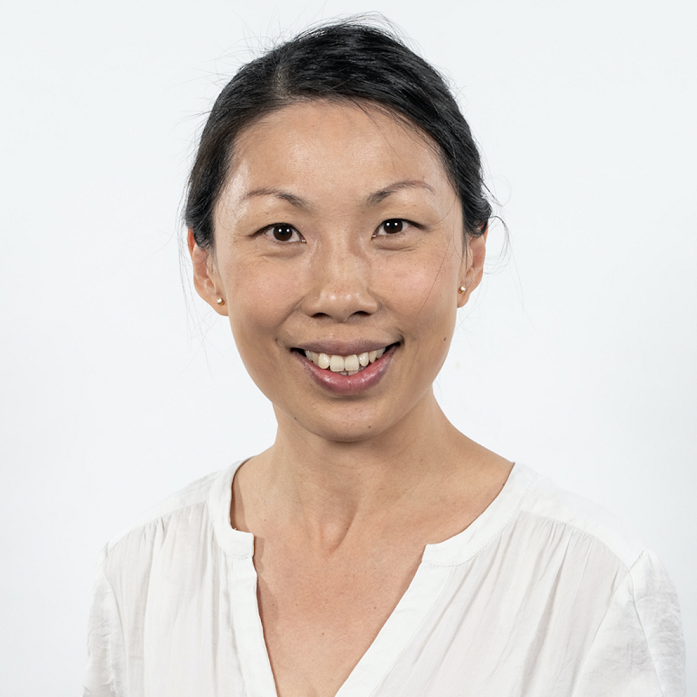 Zhiqi Liang, PhD
Zhiqi Liang, PhD
Singapore
My research is on neck pain in migraine, with a clinical focus on whether there is musculoskeletal dysfunction of the neck in migraine that can be addressed with physiotherapy interventions, and how such dysfunction can be identified. I am privileged to have a supportive and experienced advisory team comprising of world renown experts in this area. Additionally, the graduate school provided a wide range of courses to support my candidature, allowing me to learn various adjunct skills such as statistical analysis coding, research presentation and career planning. The large group of PhD candidates within the School of Health and Rehabilitation Sciences not only provided a large support and social network, it also meant that there were plenty of other students at various stages of their candidature who were able to share their expertise in different areas. My PhD research has been successfully published in leading journals of the field and presented at conferences, including the International Headache Congress 2021 (Virtual). I hope to continue with clinical research into headache and neck pain following graduation. All these would not have been possible without the guidance of my excellent advisory team.
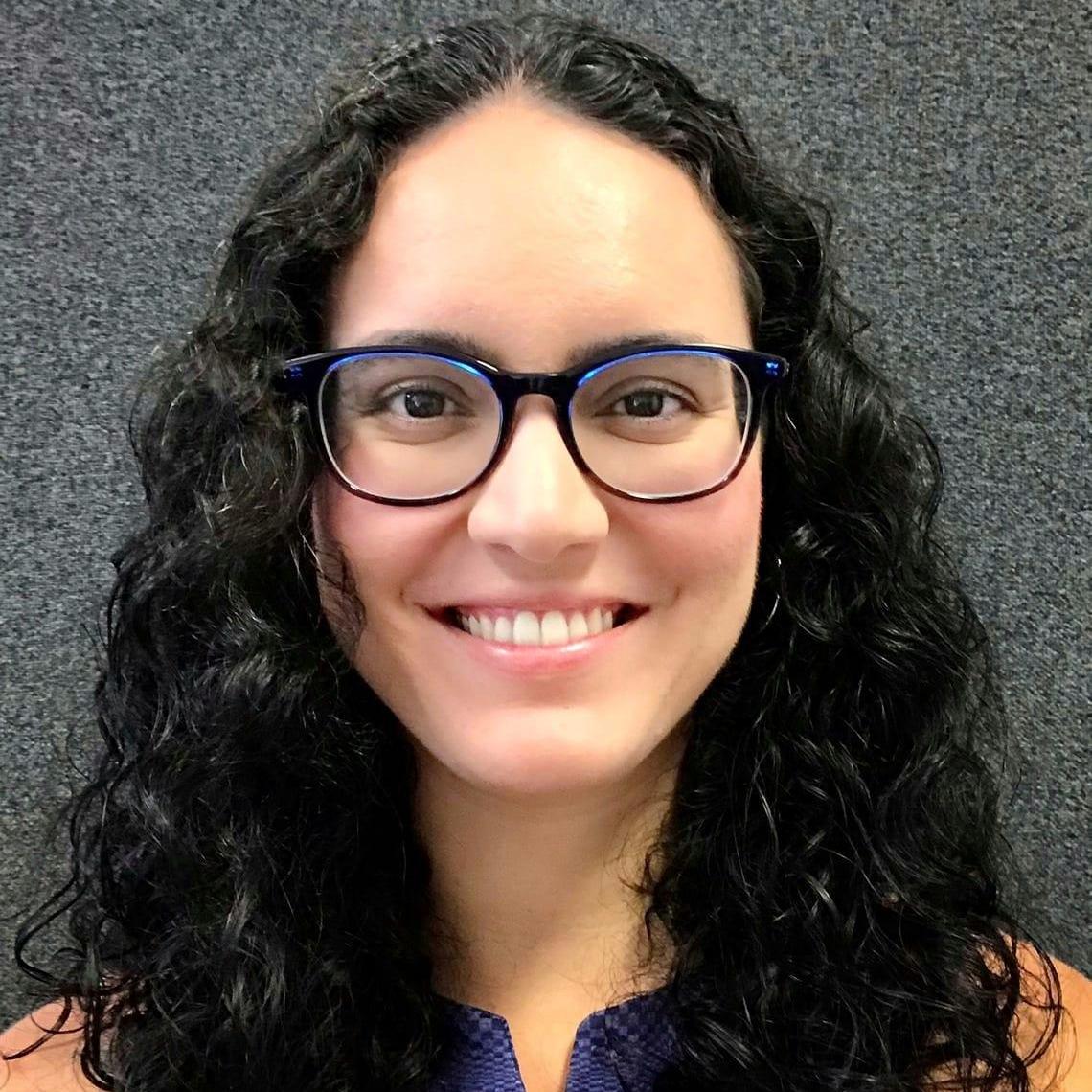 Karime Andrade Mescouto, PhD Candidate (Physiotherapy)
Karime Andrade Mescouto, PhD Candidate (Physiotherapy)
After completing a master’s degree and being a lecturer in Brazil, undertaking my PhD studies at UQ has been paramount to both my personal and professional growth.
I was fortunate to have received a UQ scholarship to work under the supervision of leaders in my field, such as Dr Jenny Setchell and Professor Paul Hodges, and work across disciplines with Associate Professor Rebecca Olson from the School of Social Science. During my PhD I have been given the opportunity and support to teach in Physiotherapy and Sociology courses, collaborate with other research groups, and present my work in numerous conferences (both nationally and internationally). I was also able to develop my leadership skills by being part of conference organizing committees, assisting in supervising undergraduate students and managing other international research projects.
My PhD is part of a wider project where I had the opportunity to co-design recommendations with clinicians and people with lived experiences of low back pain to enhance the human aspects of clinical encounters. The multidisciplinary nature of my work and the support from my advisory team and UQ are allowing me to expand certain boundaries of my profession and think differently about Physiotherapy and its value to the global community. Although I am one year from graduating, I plan to continue working across disciplines and contribute to collaborative and reflexive research and teaching practices after my studies.
As an international student, move countries and adapt to another culture is always a challenge. Still, the support I gained from my supervisors, SHRS, and other PhD peers have made this process easier and much more enjoyable.
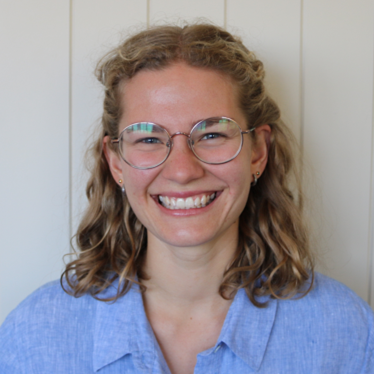 Romany Martin, Doctor of Philosophy
Romany Martin, Doctor of Philosophy
I started my PhD Studies with UQ in 2019 and have undertaken research into the teaching and learning of empathy in health professionals. We investigate how to develop empathy in students to prepare them for setting such as rural practice, which is what I’m passionate about.
Whilst the research process has been challenging, working at UQ I’ve had access to everything that I could possibly need whilst also being supported by brilliant supervisors. It’s a community of people who mentor and support you to undertake roles and experiences that you wouldn’t have been exposed to otherwise. It’s been great fun and allows you to be autonomous in how you chose to spend your time (investing your time in what you’re actually interested in and developing your own skills). I’ve loved doing my PhD, it’s provided a longer term project for myself to chip away at whilst I work clinically as a physiotherapist and also opened up other career pathways for myself in the future such as higher education. Whilst research can often have a bad reputation, it is really what you make of it and UQ has encouraged me to do exactly that – make the degree my own.
Study with us
Find out more about studying a Higher Degree Research program.

